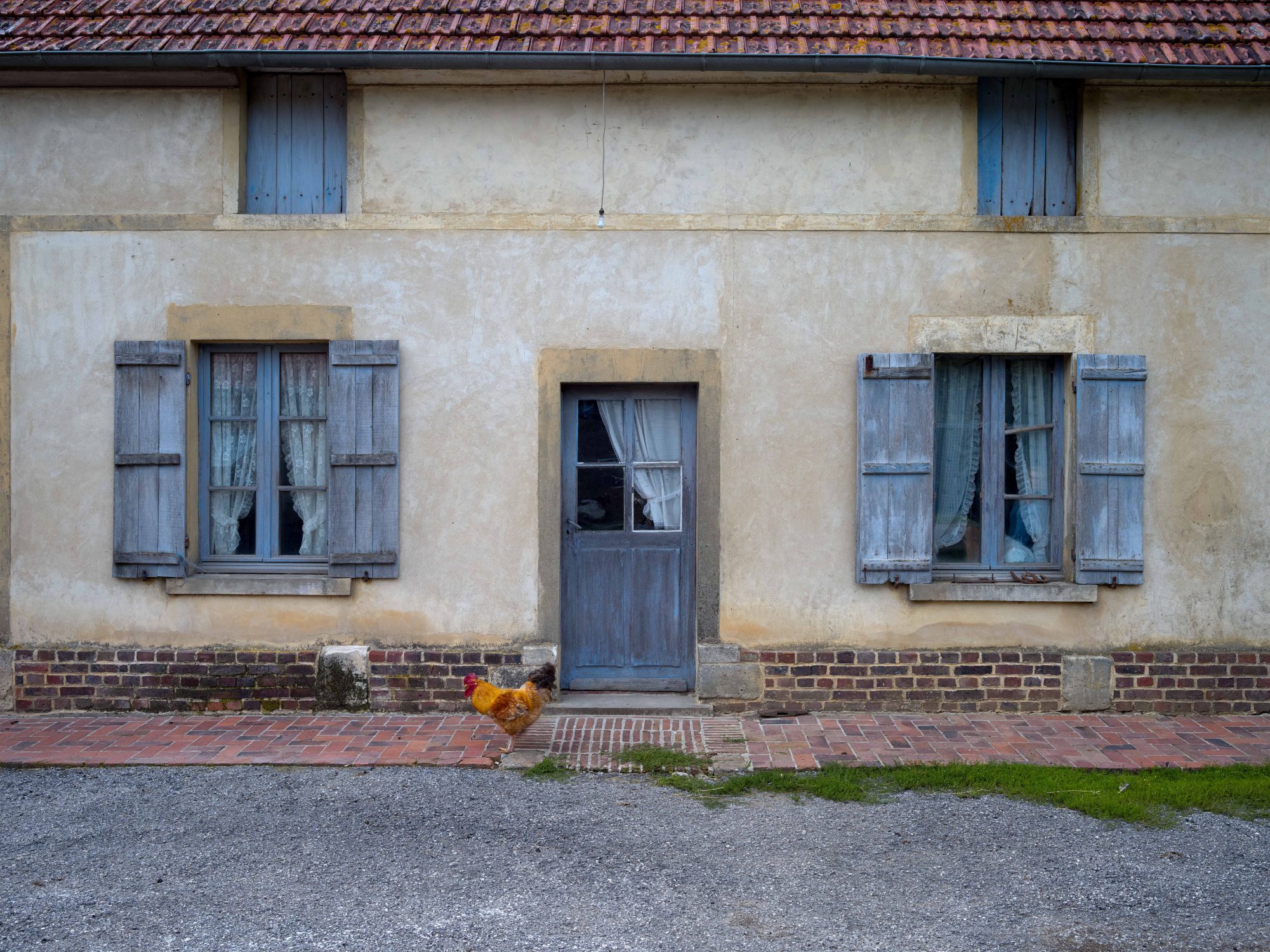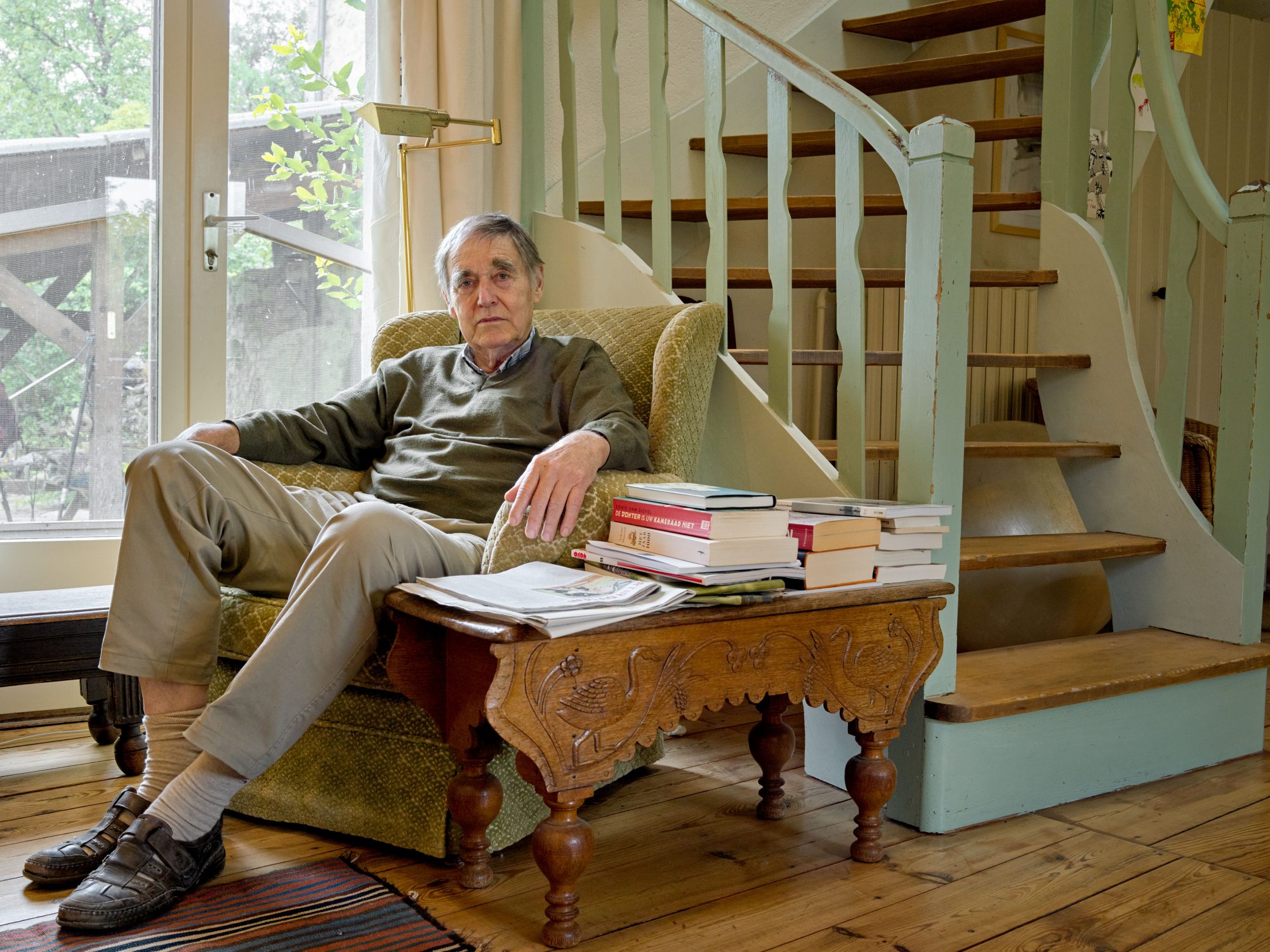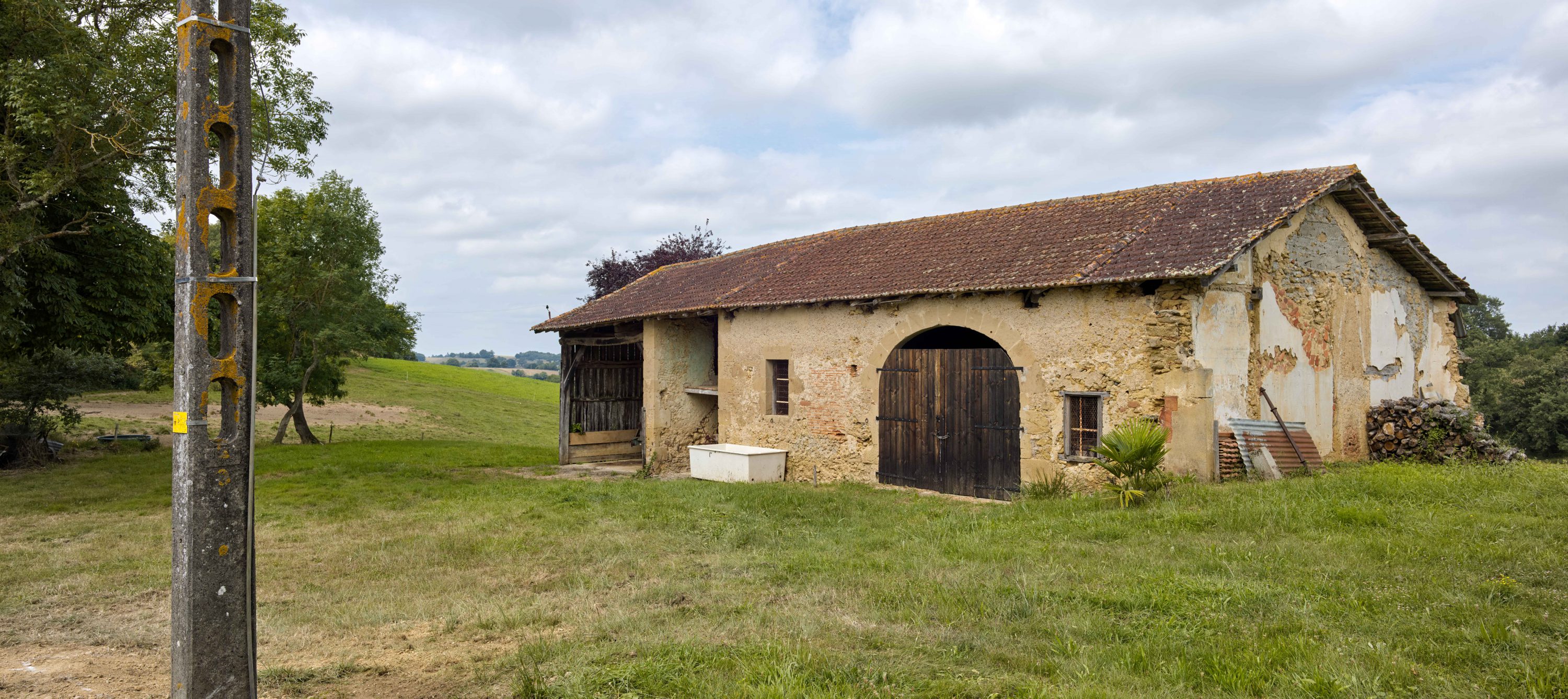

We meet Luc, a cheerful man in his thirties, in the early morning in the farmyard. He doesn’t really have any time for us today, because the grain needs to be harvested and a cow needs to be sent for slaughter, the first since they began this adventure together in 2015.
‘Tomorrow there will be time, since we’re in the bakery all day.’ On Tuesdays and Thursdays they bake sourdough bread from grain they grow themselves. It finds its way onto the local market via direct sales on the farm or to restaurants, and recently they’ve started delivering it to the local school. Luc is wearing jeans and a T-shirt with a big picture on it of the Roundup logo. It’s a gift from a friend and it reminds Luc every time he wears it that his mission is to farm without poison and as close to nature as possible.
Marion is trained in bread baking and has the same infectious enthusiasm as Luc. ‘I wanted to do something with my hands and to make a contribution to the community. Baking good bread is my contribution.’
When we walk into the bakery the following morning, Marion is busy with her sourdough, the basis for her bread. But sourdough lives a life of its own, Marion explains to us. ‘The temperature, the time the dough needs to rise – it all has to be quite precise.’
Luc is taking the children to the creche and when he gets back he’ll help Marion knead the dough and shape it into loaves, as well as keeping the fire in the oven going.
We spend the whole day with them. At four o’clock the first loaves come out of the oven. When the last of them are done, the bakery is quickly tidied up and the loaves are laid out on a long wooden table. Then the first regular customer arrives, and half an hour later the farmyard has been transformed into a village square where the locals exchange the latest news.
When the last of the customers has left the farm in his little Renault, the trailer stops to fetch the cow. Luc finds this more stressful than the cow, which is docile as it walks into the trailer.
“Having to take away a cow like that for the first time is quite something. After all, you’ve cared for the animal for seven years. And this one is extra special. We’ve sold half to a local organic butcher and the other half is for the party we’re going to throw when we get married in August.”
La Ferme de Barrotes
In 2015 Luc and Marion took over the tenancy of Beret Farm in the Pays de Loire region, an organic livestock farm in a part of the Loire that is one of the most difficult to farm.
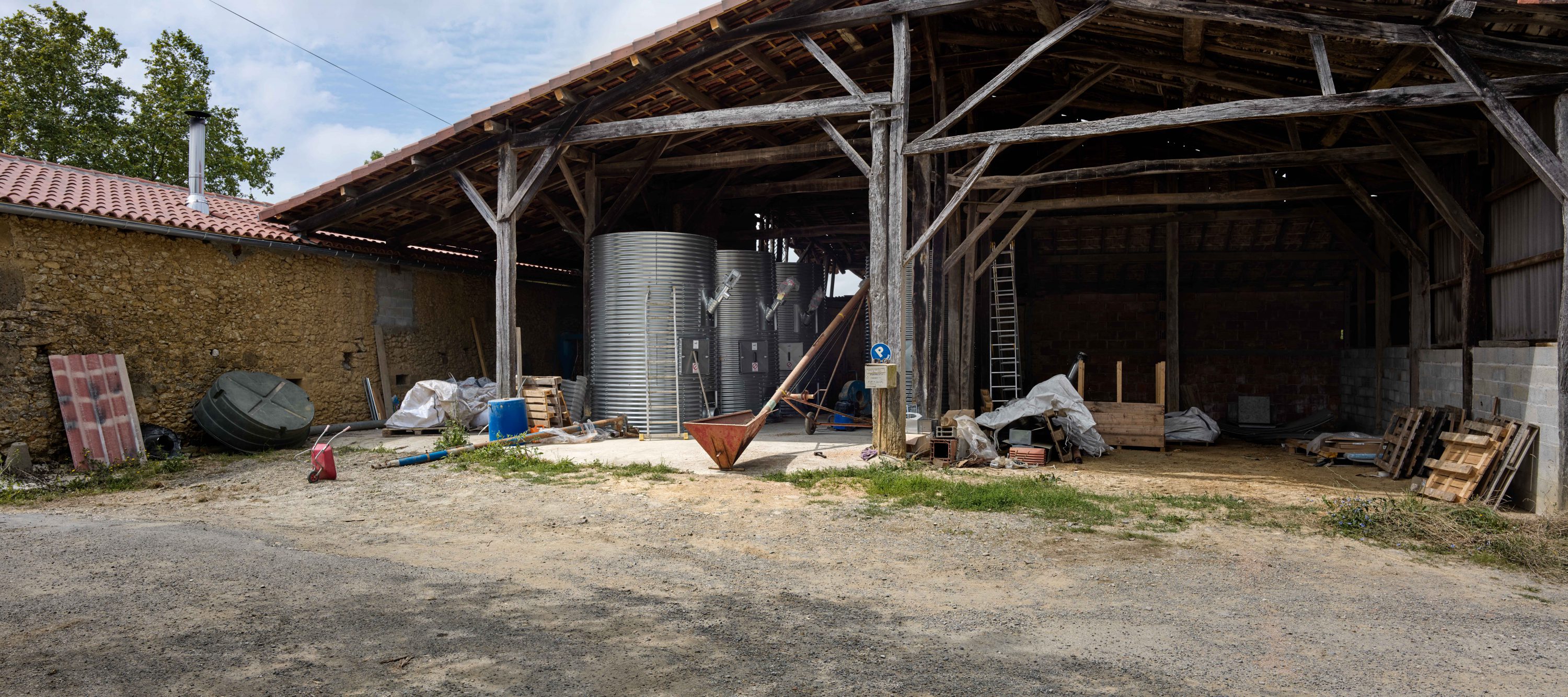
“All our products are labelled AB (Agriculture Biologique). We sell them locally. We want to produce healthy food to feed the community. Our farming methods are focused on the preservation of biodiversity and the respectful treatment of nature, humans and animals.”
With 68 hectares of land, the farm is a mixed enterprise where Limousin cattle are bred and grains are grown for the making of sourdough bread in a shed that has been converted into a bakery.
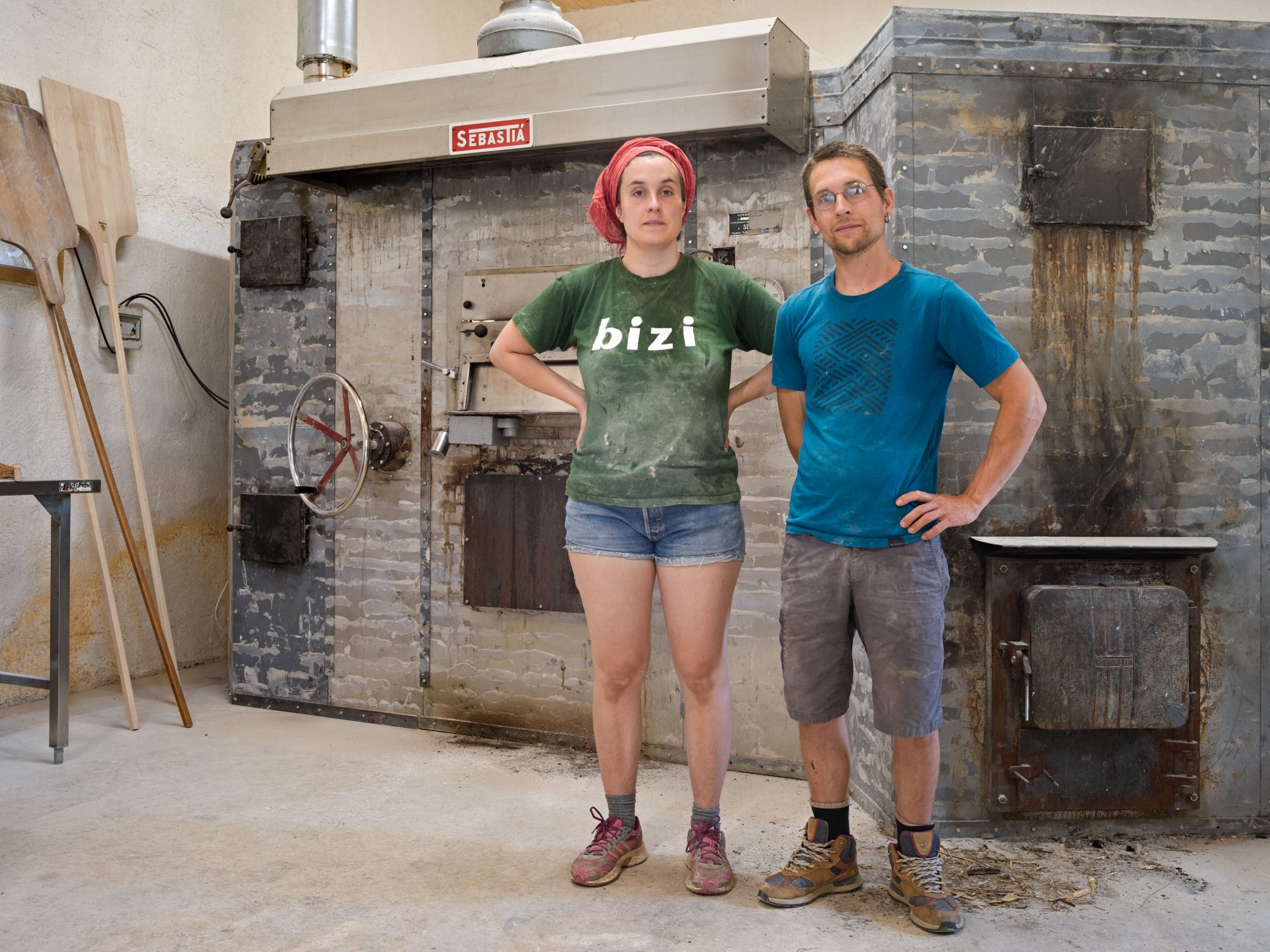
"We don't want to own the land...
Luc La Haye and Marion Fleurance
La Ferme de Barrotes

There was not enough land for Luc and Marion’s plans and their short-term rental contract offered them little security for the future. So they contacted a foundation called Terre de Liens and in 2018 it helped them by buying La Ferme de Barrotes in nearby Armous-et-Cau. That purchase put Luc and Marion in a position to devote all their resources and attention to the running of the farm.
“The help of Terre Liens has freed us from the burden of land ownership. Furthermore, it’s a sustainable solution for subsequent generations of farmers on this farm.”
...we just want to be the users of a common resource."
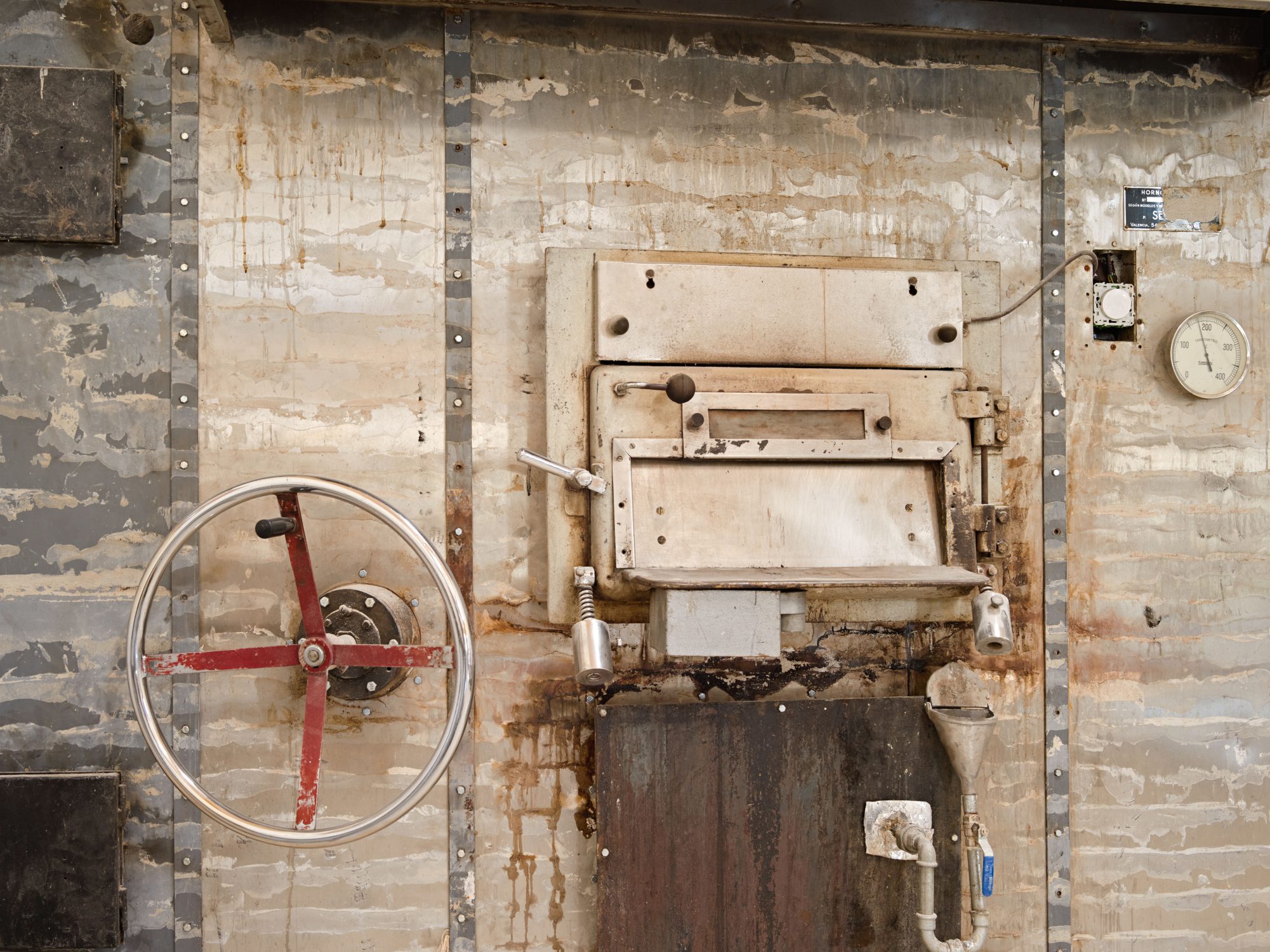
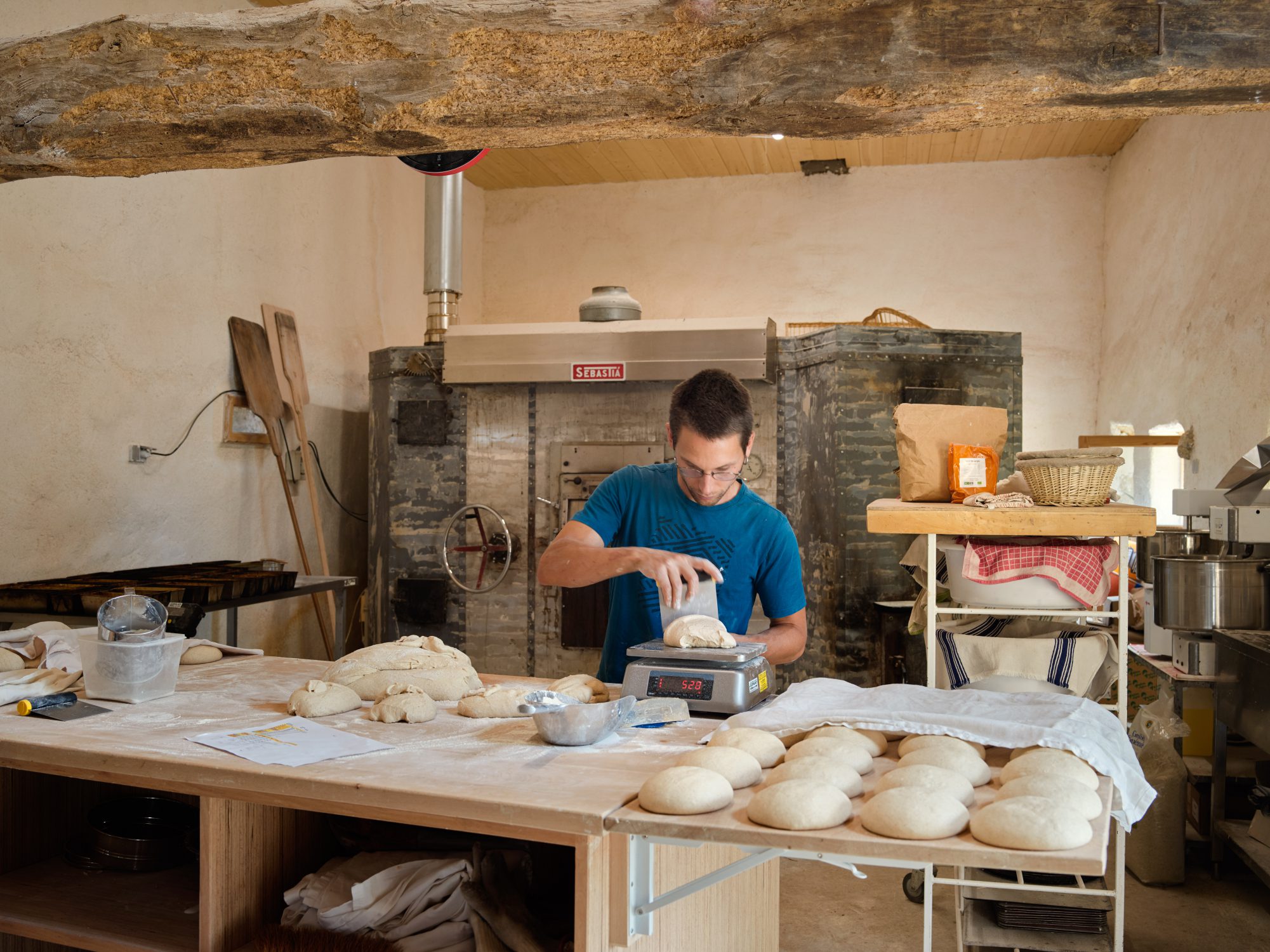
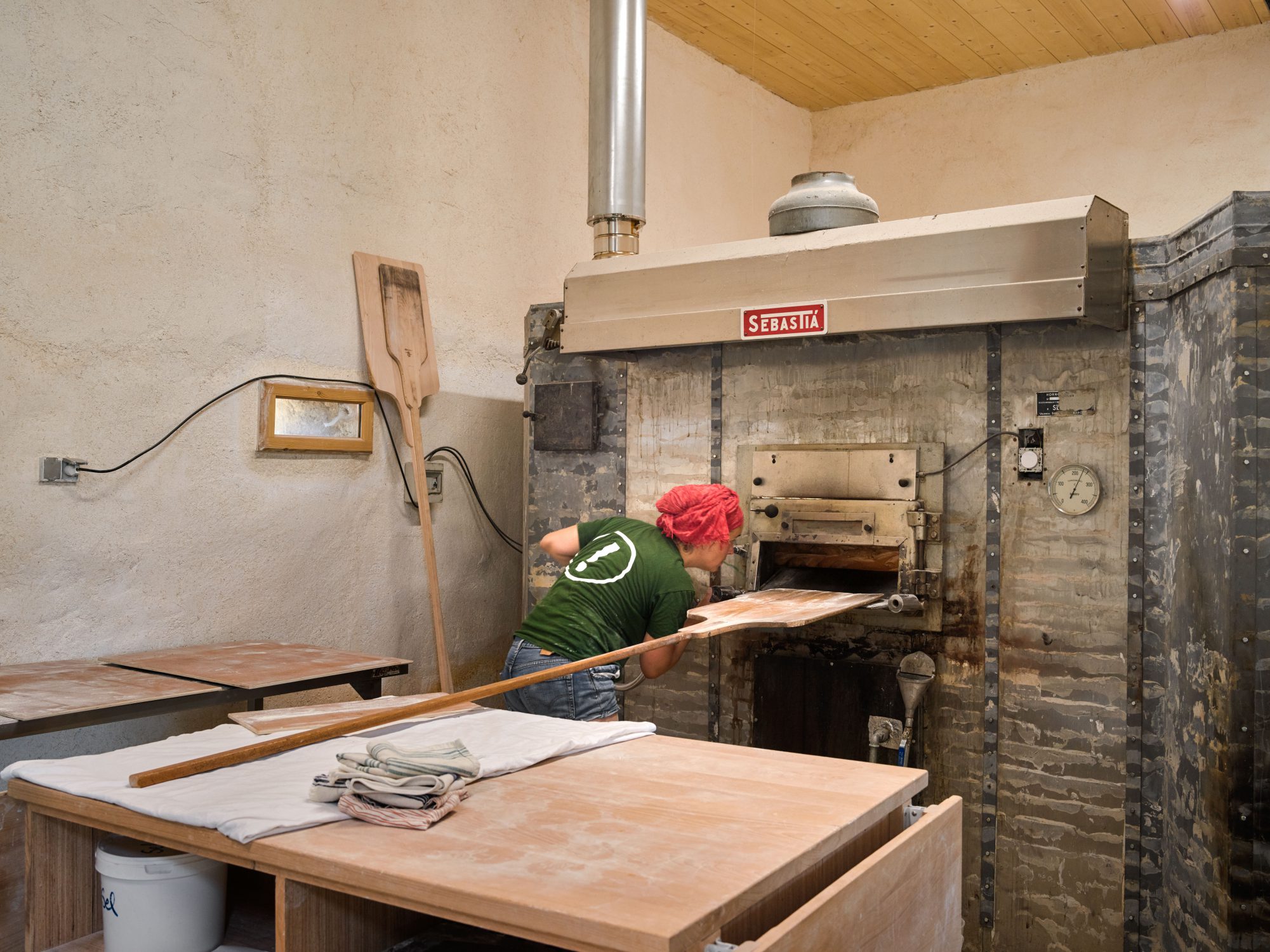
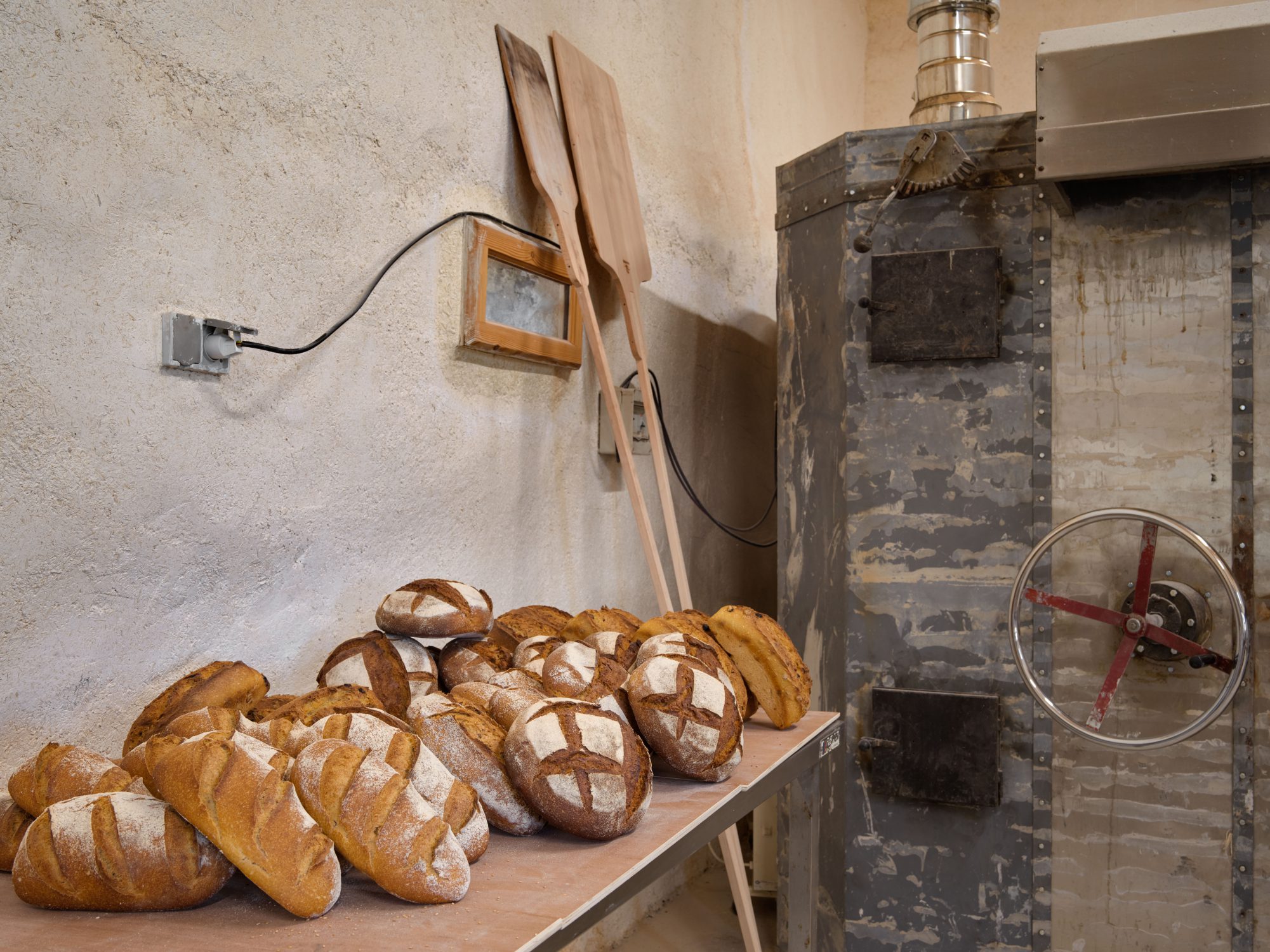
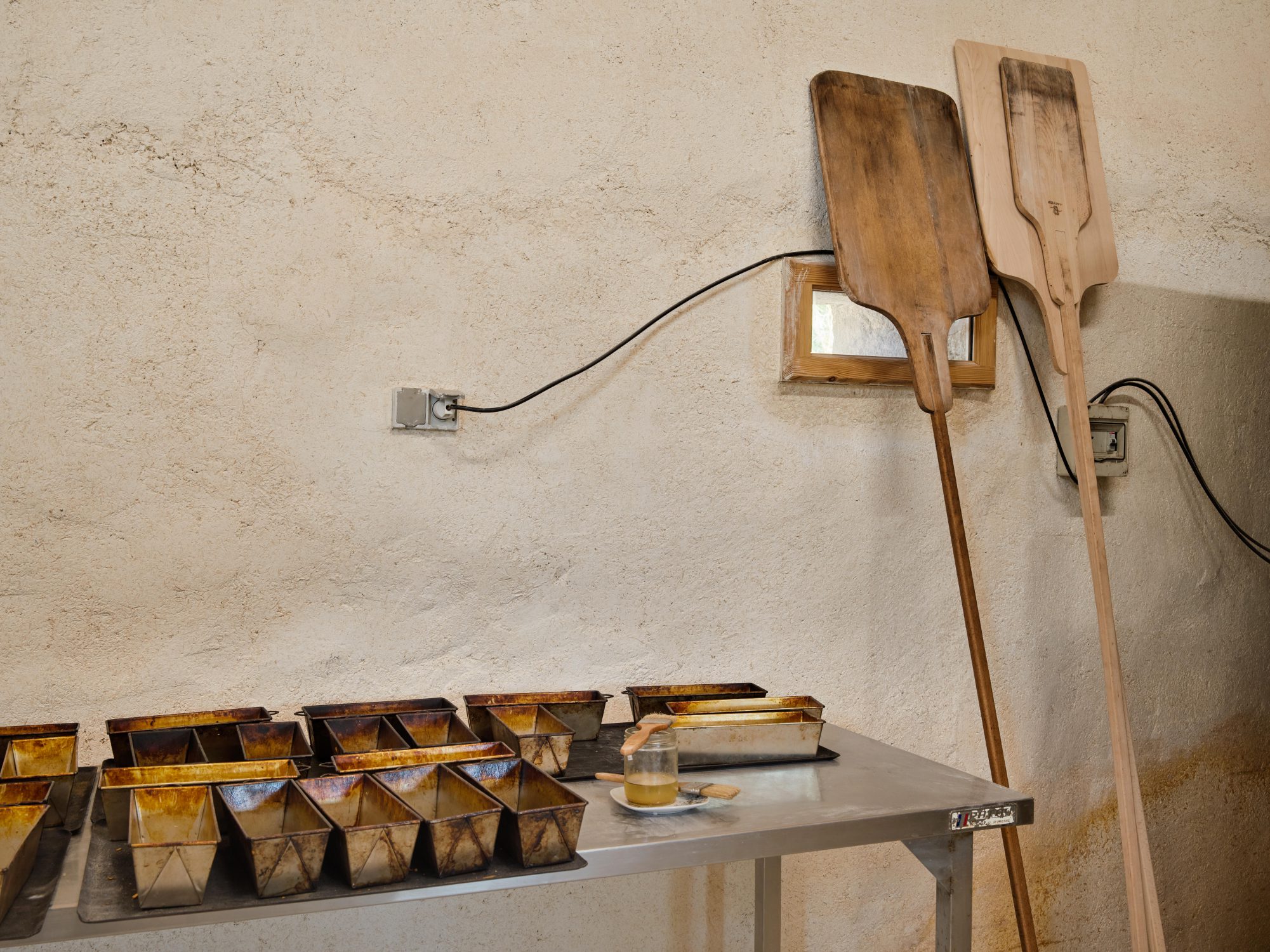
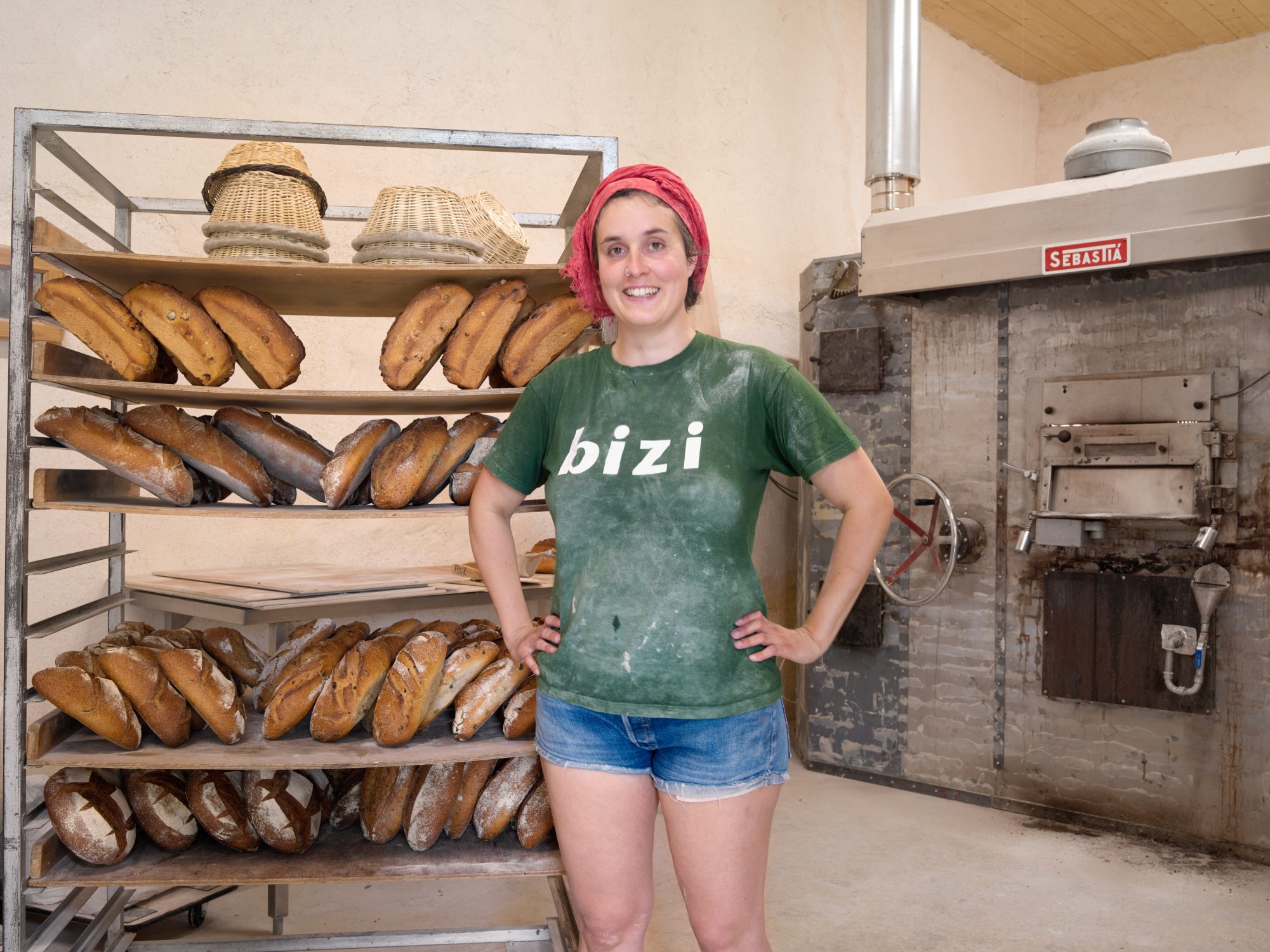
The Farm to Fork Strategy is part of the European Union’s Green Deal, the European Commission’s plan to make the European economy sustainable. The Farm to Fork Strategy was drawn up in 2020 and the policy is expanding from agriculture to the entire food chain, all the way from production to consumption.
Problems are often laid at the door of the farmers, but to make a food system sustainable, the entire chain has to be prompted to change, including the consumer.
"I feed people, I create something that comes from our soil. It grows here, it's made here, it's sold here and it's eaten here.
We have selected another two stories that might inspire you.
